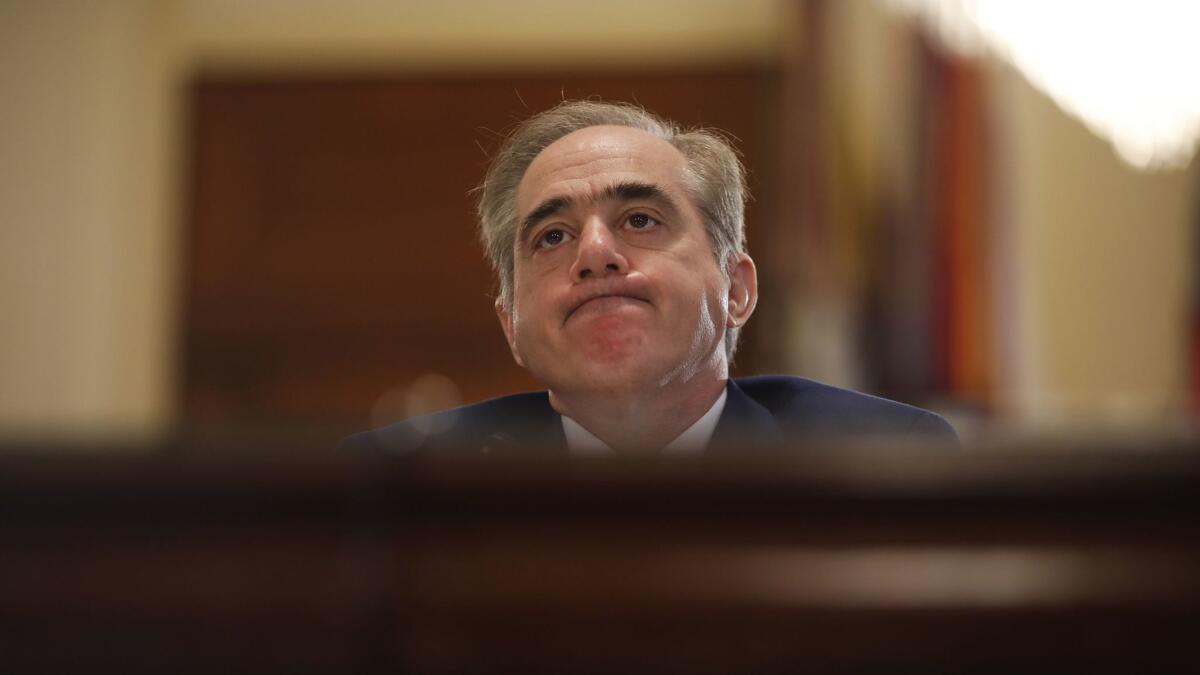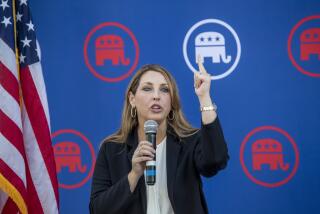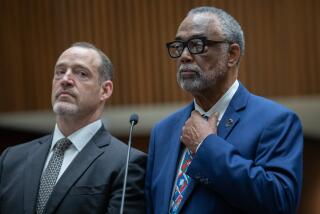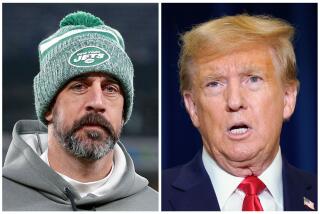Op-Ed: In any other presidency, our ‘insufficiently accurate’ secretary of Veterans Affairs would be gone

Deceiving an ethics official is a serious offense for a government employee. Can we agree on that?
Now imagine you’re a Cabinet official leading an agency of a few hundred thousand employees. One day last spring, you decide to accept an invitation to a July conference in Europe. Your chief of staff alters a federal record so your wife can tag along at government expense. You tell a staffer with a six-figure salary to play personal travel concierge for your wife. (The staffer later emails a colleague: “Boss told me ‘if she’s happy, I’m happy and you’re happy.’”) On the trip, your entourage idles as you devote much of your time to leisure. The whole thing costs taxpayers more than $122,000.
Shulkin announced a plan to purge the VA of everyone who engaged in “subversion” against him.
Along the way, without consulting your agency’s ethics office, you accept free tickets to the women’s finals match at Wimbledon, and a court-side meal, from the 2016 CEO of the Invictus Games, a sports competition for injured veterans and service members. Two months later, you learn that a reporter is sniffing around and you ask your agency’s lead ethics official for an “expedited” opinion on the tickets and the free lunch. In response to her questions, you tell the ethics official that the gift-giver is your wife’s friend. (There’s an exception to the gift ban when it’s “clear” a gift is motivated solely by a personal relationship.)
This fact pattern comes from a report issued Feb. 14 by an inspector general of the Department of Veterans Affairs. Let’s consider the evidence and see if we think VA Secretary David Shulkin was being straight about the friendship between his wife and the woman who gave the gifts. (Spoiler Alert: He wasn’t.)
* When asked by investigators, the woman could not remember the name of Shulkin’s wife. Three months before supplying the Wimbledon tickets, the woman asked a mutual acquaintance for an introduction to Shulkin. She denies this, but investigators spoke with the acquaintance and obtained a contemporaneous email conveying her request to Shulkin.
*Before the Wimbledon tournament, Shulkin and his wife had encountered the woman only three times at functions related to his VA work. The woman later remembers “significant …chatting” with Shulkin’s wife while he was “making the rounds.”
*Shulkin could not produce a single letter, postcard, voicemail message, email or text with the woman predating the planning for the Europe trip. Investigators reviewed his wife’s phone records and found no evidence of calls with the woman in the year before the tournament.
* Shulkin’s lawyers produced only one pair of texts exchanged two months after the tournament, and the sequence of events surrounding them is suspicious. The woman emailed Shulkin that a reporter had been asking questions about the Wimbledon tickets. Immediately thereafter, his wife called the woman. After the call, they exchanged text messages that read as though the two hadn’t just spoken (“Hope you’re both keeping well!”). The texts contained an offer and declination of reimbursement for the tickets. That same day, Shulkin requested the post hoc ethics opinion.
* The next day, as the first news story related to the trip expenses was about to be published, Shulkin’s press secretary released a statement that all activities associated with the trip “including Wimbledon” were approved by the ethics office. When ethics officials objected that the statement was untrue, the press secretary told them Shulkin was responsible for its contents; Shulkin later told investigators he didn’t recall telling the press secretary what to say.
* On the day they attended the tournament, emails indicate that the woman asked Shulkin for help getting into a veterans event scheduled for the following week. She and Shulkin say he didn’t help her. But three days after the woman requested his help, one of the event’s planners sent an email that reads: “Secretary Shulkin may wish to be aware that [the woman] will attend the conference on [Wednesday and Thursday] morning.”
For his part, Shulkin attacked the VA’s inspector general as having an “agenda.” He also claimed hackers altered the federal record that his chief of staff used to get the VA to cover his wife’s travel expenses. One day after the inspector general released the report, and notwithstanding a denial and defense issued by his private attorneys, Shulkin told Congress he had ponied up for his wife’s travel expenses and for the Wimbledon tickets. His chief of staff retired a day later. A few days after that, Shulkin announced a plan to purge the VA of everyone who engaged in “subversion” against him.
The inspector general’s report delicately concludes that the information Shulkin provided to the VA’s ethics office was “insufficient to accurately describe his or his wife’s relationship” with the supplier of the Wimbledon tickets as a “personal friendship.” The evidence is more than enough to warrant Shulkin’s termination. Or it would be, if the Trump administration cared about government ethics.
Walter Shaub, senior director for ethics at the Campaign Legal Center in Washington, resigned as the director of the Office of Government Ethics in July 2017.
Let’s consider the evidence and see if we think VA Secretary David Shulkin was being straight about the friendship between his wife and the woman who gave the
Follow the Opinion section on Twitter @latimesopinionand Facebook
More to Read
A cure for the common opinion
Get thought-provoking perspectives with our weekly newsletter.
You may occasionally receive promotional content from the Los Angeles Times.






